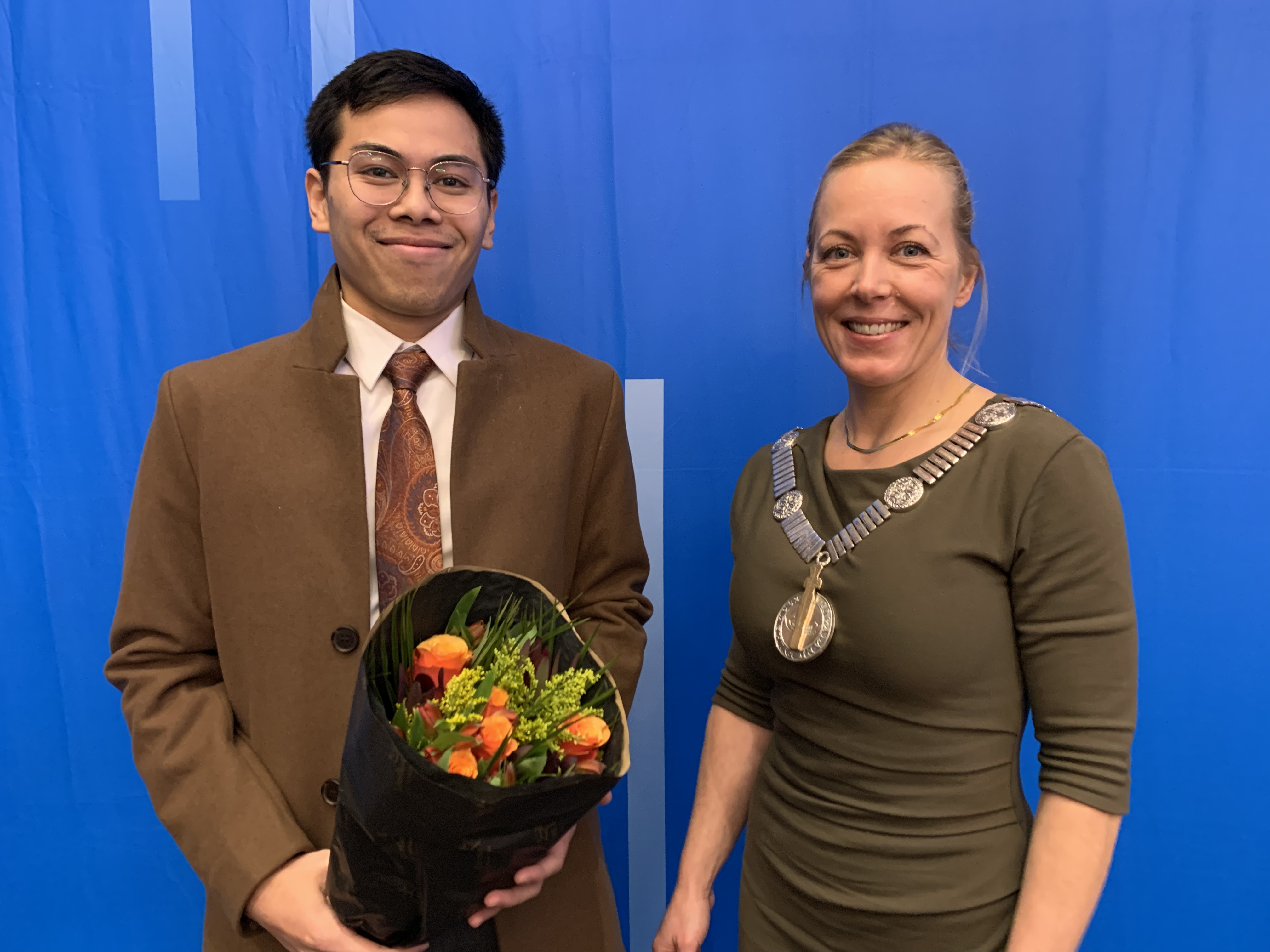On the 25th of October 2022, Izwan Ahmad was awarded the 2022 Innovation Awards for master’s students by Rogaland county mayor Marianne Chesak.

Izwan Ahmad is a master’s student from the Department of Mechanical and Structural Engineering and Materials Science (IMBM) at the University of Stavanger. Under the supervision of Professor Muk Chen Ong and Anja Schnepf, he has written his master’s thesis on the topic of “Optimization of Suspended Inter-array Power Cable Configurations for Floating Offshore Wind Turbines” which led to this award recognition.
The 2022 Rogaland Fylkeskommunes Innovation Award for master's students was assessed by several juries from UiS, Validé, HVL, BI Stavanger, VID i Rogaland, Rogaland fylkeskommune, and Ungdommens Fylkesråd. To qualify for this award, the thesis must meet several requirements such as the
- UN sustainability goals
- a high degree of innovation, including combining familiar elements in a new and innovative way
- a new solution to an important problem
The majority of the jury collectively agreed that Izwan’s thesis has a clear sustainability perspective and can lead to great value creation. His thesis has a very high academic standard and could be a major breakthrough for the green transition in society. Izwan also shows good communication skills by explaining a challenging concept in a good way.
In his thesis, Izwan Ahmad developed several configurations of suspended inter-array power cables between two floating offshore wind turbines. In this configuration, the cable is attached directly to the floating offshore wind turbines and does not touch the seabed. The cable does not reach the sea surface and remains submerged at deeper water depths. He further developed an optimization methodology for such configurations.
Through the application of this concept the material used can be greatly reduced compared to cables that are laying on the seabed. Cables can be shorter, which also reduces the transmission distance of the electricity. Hence, there is less loss of electricity over the transmission distance. Izwan’s thesis contributed to the United Nations (UN) sustainability goals (1.) Affordable and Clean Energy, and (2.) Industry, Innovation, and Infrastructure.